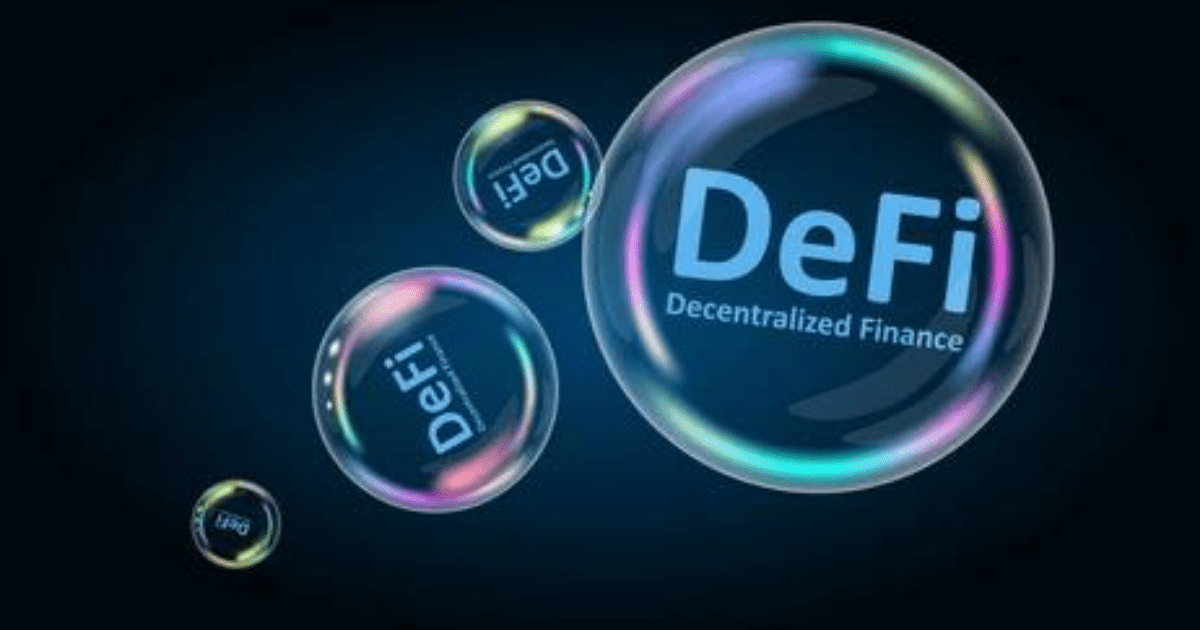Decentralized finance(Defi) doesn’t rise to shadow banking and is “too enormous to even think about fizzling.”
Charlie Warzel’s for the most part very meaningful Galaxy Brain bulletin conveyed a provocative feature this week: “Is Crypto Re-Creating the 2008 Financial Crisis?”
Opinion-
Of course, it ended up being a facetious inquiry. The Atlantic author’s bulletin conveyed a meeting with American University regulation teacher Hilary J.
Allen in which she talked about her new paper contending that decentralized money is rehashing the mix-ups of “shadow banking” that went before the monetary disturbance of the last part of the 2000s.
You’re perusing Money Reimagined, a week after week take a gander at the innovative, monetary, and get-togethers and patterns that are rethinking our relationship with cash and changing the worldwide monetary framework. Buy into getting the full bulletin here.
Allen’s proposition is that the serious level of intricacy around DeFi’s imaginative new models for getting, loaning, protection, and installments will leave a similar absence of clearness around approaching dangers that credit default trades (CDS) and collateralized obligation commitments (CDOs) cultivated during the pre-emergency lodging bubble.
“Intricacy instigated murkiness expands the opportunity that such dangers will be undervalued in great times (causing bubbles), and misjudged in awful times (exacerbating frenzies),” she composes.
Allen is asking the U.S. government to step into managing the area before it turns out to be more coordinated with the standard monetary framework.
She contends that decentralized applications (dapps) ought to be authorized and their organizers and designers subject to implementation activities assuming they are resistant.
That will not agree with many in the crypto local area, where those open-source coders who can be accused of bad behavior are viewed as chilling to advancement.
To start with, let me recognize there are a few truths in Allen’s DeFi perceptions and that a part of the equals she attracts to the monetary emergencies are genuine and significant.
It’s actually the normal individual who couldn’t really expect to get DeFi. Like how Wall Street’s monetary specialists took advantage of the black box of CDS and CDOs to the inevitable disservice of bank clients, that intricacy additionally gives DeFi project authors topsy-turvy benefits.
It’s the reason “carpet pulls” and different maltreatments of excessively it is normal to trust financial backers.
Other legitimate perceptions from Allen: There’s a truckload of 2008 air pocket-like way of behaving in Defi now, and there’s much more centralization with confided in mediators than “decentralization” fans recognize.
Yet, there’s a key imperfection in Allen’s point of view, one that could prompt a significant approach mistake.
The glaring issue at hand
The mind-boggling contrast between DeFI pioneers during the 2020s and those of Wall Street during the 2000s is that The last option – the brokers – worked inside a sweeping political system that the previous – the crypto engineers – are immaculate by.
With their influence to make cash through fragmentary save loaning, banks work as the public authority’s representatives of financial approach, an endorsed position that accompanies restricted admittance to the Federal Reserve’s liquidity.
There’s a relationship between state-run administrations and banks that have, on occasion, transformed into codependence.
Show A: the “too enormous to even think about fizzling” issue ahead of the pack up to the monetary emergency.
This was the possibility that a likely breakdown in the major, fundamentally interconnected bank would posture such a horrendous danger to the economy that the public authority would have no choice except to rescue such foundations assuming they ran into an inconvenience that occurred in 2008.
It was an ethical peril issue that, during the 2000s, powered a monstrous market contortion. Before the emergency, banks confronted uneven dangers. They could enjoy triumphs while the home loan market was hot yet confronted no results when it turned south.
The outcome was a twisted, misshaped form of free enterprise in which benefits were privatized and misfortunes mingled.
In the reference that Allen makes to this, she generally utilizes it to excuse crypto lovers as credulous, proposing their advantage in DeFi is propelled by scorn for bailouts.
The central government’s activities to support the monetary framework in 2008 were vital. this total overlooks the main issue. One can accept, as I do, that the 2008 bailouts were the lesser of two indecencies and yet reprimand the “too enormous to even think about falling flat” arrangement of reliance that left the public authority has no choice except to execute them.
What’s more, that is what’s confident about crypto. We have the possibility of liberating our monetary framework from reliance on the excessively strong middle people that have for a really long time seized an extreme extent of the economy’s assets and political capital.
To accomplish that, we don’t be guaranteed to have to achieve some idealistic norm of absolute decentralization. (I see as the “gotcha” investigates from any semblance of Allen about how crypto’s not quite as decentralized as the story proposes rather tedious. Every one of the brilliant individuals in this space knows this.)
Rather, we want a framework that is open to contest and advancement for an altogether more extensive arrangement of members than exists in this framework.
That implies specific components ought to be decentralized and “permissionless,” while different parts will need the association of confided in gatherings to do suitable effectiveness. What is important is the equilibrium to such an extent that each foundation is liable to some type of market pressure.
Simple advancement versus hard development
Furthermore, that is the thing that makes the development by-intricacy examination invalid across the two domains. Since banks have an authorized restraining infrastructure over money-related creation, a job so indispensable that it acquires them implied citizen insurance against misfortunes, the “advancement” they attempt molded by different motivating forces and governing rules than that of DeFi designers.
Banks had the privilege to foster CDS, CDOs, and CDO- squared items to support influence and expand transient benefits without adjusting those wagers for the gamble that the market could betray them.
DeFi engineers face a considerably more liquid and unforgiving business sector. That is not just in light of the fact that they don’t have the understood citizen to ensure that banks have yet additionally on account of a central plan component of DeFi: the open-source “lego” composability of code and low hindrances to passage.
That plan implies anybody with adequate coding information can turn up another mechanized market creator, another administration token, or a new stable coin calculation without asking for authorization from an administration or some other intermediating organization. What’s more, that implies they can challenge the officeholders.
Think about the narrative of DeFi throughout the course of recent years. In the first place, MakerDAO was the sweetheart of the market, then, at that point, Compound, then Aave, then Sushi Swap and afterward half-breed gaming/DeFi administrations like Axie Infinity, all established not long after their abrupt flood to progress.
Contrast that and the victors that rose up out of the rubble of the home loan emergency: JPMorgan Chase and Bank of America. They follow their foundations back to 1799 and 1904.
This DeFi dynamism, in the event, that it very well may be maintained, will forestall the rigidities that Allen stresses and will raise the very sort of foundational risk that consumed the financial framework during the 2000s.
That is on the grounds that the market is revising the various champs’ and failures’ tokens. Everything revolves around the cost signals.
Without a doubt, risk-taking financial backers will keep on losing cash from mat pulls and code breaks while others will make fortunes.
But, this hurly-husky is very not the same as the fundamental issues that assail the monetary framework during the 2000s, when everybody and each chance resource was winning for a supported time of years before everybody and everything began greatly losing as one.
What could undermine this market-driven balance? A badly thought-out administrative model. That is what.
Need to develop a fundamental gamble in DeFi? Then, at that point, give banks, with their ethical risk-based loaning model, a benefit over open-source designers. Make the last option look for consent to acquire the licenses that banks are as of now advantaged to have.
Make it expensive no doubt, market-centered advancement to happen, and make transient shifty development for all intents and purposes riskless by supporting it with government protection and citizen ensures.







